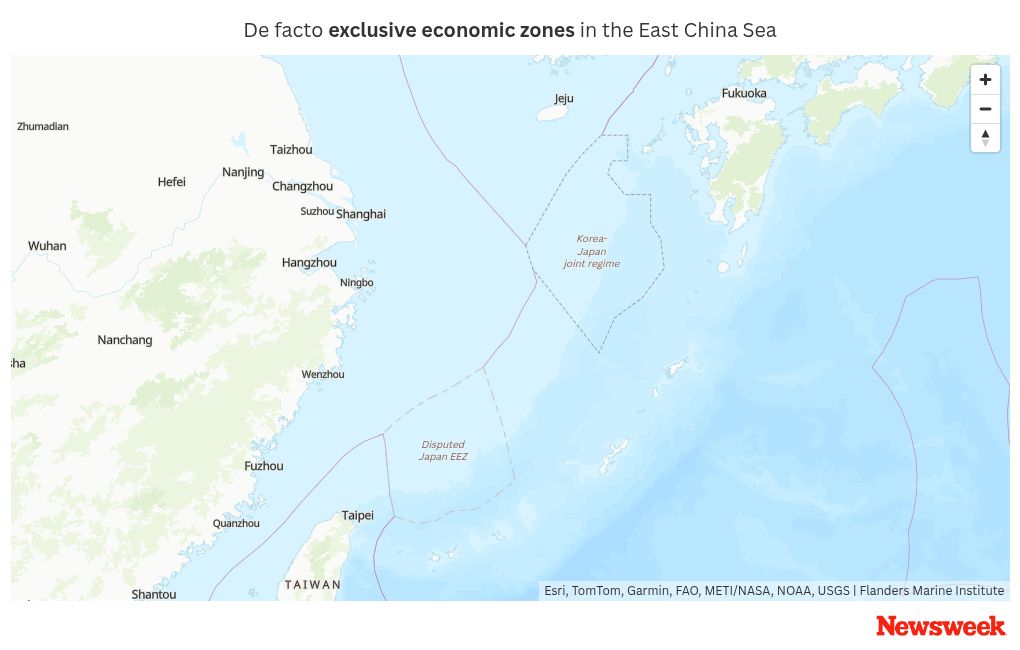Japan says it has lodged a protest over a new Chinese structure near the median line between the two countries in the energy-rich East China Sea.
The dispute echoes a similar one with South Korea, which has recently stepped up its objections to Chinese activities in the Yellow Sea. Beijing’s neighbors fear it plans to achieve de facto control over these areas.
Newsweek reached out to the Chinese Foreign Ministry via email with a request for comment.
Why It Matters
Tokyo views unilateral construction as a violation of the spirit of a still-unimplemented 2008 agreement to jointly develop gas fields until the two sides can agree on a formal demarcation of each’s exclusive economic zone—within which a state is entitled to sole access to resources under maritime law.
The issue comes as China increases patrols by its heavily armed coast guard near the Japan-administered, Beijing-claimed Senkaku Islands, drawing stern rebukes from the U.S. ally.
What To Know
Japan’s Foreign Ministry said on Wednesday it had “immediately issued a strong protest” to the Chinese embassy in Tokyo over the latest structure.
“It is extremely regrettable that China is advancing unilateral development in the East China Sea, while the exclusive economic zone and continental shelf have not yet been delimited,” the ministry said in a statement.
In the protest, Kanai Masaaki, director-general of the Asian and Oceanian Affairs Bureau, urged Beijing to resume talks on implementing the 2008 accord, the statement said.
Tokyo says this is the 19th structure of its kind. The continued additions, which have included hydrocarbon platforms and oil rigs—both permanent and mobile—indicate China is ramping up fossil fuel production in these waters.
While China sees the 2008 agreement as non-binding, it has so far limited construction to its side of the median line. Japan believes these operations are likely draining gas and oil basins that straddle the line and that the resources should be shared.
The controversy mirrors a similar dispute in the Yellow Sea, where China has a separate agreement with South Korea. That accord covers a provisional measures zone—an area where the countries’ EEZ claims overlap and where both sides agreed to limit activity to fishing and navigation.

Seoul says a jack-up rig China installed in these waters in 2022—without notification—could qualify as a permanent structure and signal the start of Chinese eastward expansion. China insists the platform supports aquaculture operations.
The issue featured in talks when officials from both sides met for talks in April. South Korean officials have since warned of “proportional” countermeasures if Beijing fails to be more transparent about the rig and its purpose.
What People Are Saying
Collin Koh, senior fellow at Singapore’s Institute of Defense and Strategic Studies, told Newsweek: “Erecting structures along the median line in contested maritime spaces help give an appearance of effective control and administration, thus facilitating one to push a claim.”
What Happens Next
China has not yet publicly responded to Japan’s latest complaint. But based on past behavior, it is likely to move forward with the new installation.
The post China Builds New Structure in Disputed Waters Claimed by US Ally appeared first on Newsweek.




